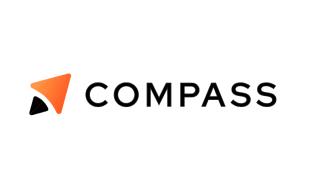
KICKICO, a new platform for initial coin offerings (ICOs) and crowdfunding or crowdinvesting campaigns powered by Ethereum smart contracts, will launch its KickCoin (KC) token sale in two weeks.
"KickCoin is a cryptocurrency awarded to backers who support pre-ICO, ICO or crowdfunding campaigns,” reads the KICKICO whitepaper. “KickCoins are generated by the smart contract automatically when backers support campaigns that are launched on the platform. Therefore, KickCoins are never 'made out of thin air' but are always backed by other currencies, as well as by campaigns successfully completed on the platform.”
Most of the external projects that have been pre-announced on the KICKICO platform are related to gaming and this is no coincidence. In fact, KICKICO founder and CEO Anti Danilevski has gaming in his bones. He started to work as a game designer at the age of 14, made his first game when he was 20, and went on to create other indie games including the browser-based "Carnage," which became the most popular game in Russia.
“We take on board only the projects from the areas we are good at, using our own and advisors' expertise,” KICKICO strategic partnership manager Yury Parsamov told Bitcoin Magazine. “Our CEO and founder has 20 years’ background in online games, so we have lots of them already as drafts on the website and we understand their potential. That's why we reduce the percentage of failed projects to a minimum. As you know, ‘failed projects’ is one of Kickstarter's main problems.”
Besides gaming, Danilevski has long been active in the crowdfunding scene. In 2011, he was the first Russian to try raising funds for one of his games via the then barely known crowdfunding platform Kickstarter. Then, Danilevski founded Russians on Kickstarter, the biggest community of crowdfunding enthusiasts in the Russian-speaking world, and was among the founders of Russian fundraising platforms Planeta.ru and Boomstarter.
When the blockchain era arrived, Danilevski decided to start his own fundraising platform based on cryptocurrency.
“I’ve worked in the crowdfunding space since 2011,” said Danilevski, per a recent blog post. “I got involved because I believed in crowdfunding and its ideals. I wanted a more democratic kind of capitalism, where the little guys had the power to bring new products to market. It’s the same reason I’m involved in Ethereum now.”
KICKICO is a "Kickstarter on crypotcurrency,” explained Parsamov. The project wants to correct some perceived flaws of everyone’s favorite crowdfunding platform. One flaw is that Kickstarter is only open to residents of certain countries. Another flaw is that Kickstarter is expensive for indie projects.
In Parsamov’s words: “Since traditional crowdfunding (we call it crowdfunding 1.0) is heavily regulated, the projects pay high fees and commissions.”
In fact, platform fees, payment fees, marketing, costs of rewards and taxes can make Kickstarter expensive. To that end, residents of non-supported countries must add the cost of paying an intermediary in a supported country.
Other crypto-fundraising platforms (for instance Singapore-based FundYourselfNow) are coming to the rescue, often with good ideas and roadmaps, but also often without products. According to Parsamov, having a working platform is what differentiates KICKICO from other crowdfunding 2.0 platforms.
“We have 100 percent ready product,” claimsed Parsamov. “And we will start operating right after the ICO, on October 1.”
“KICKICO offers to the projects that are launched on its platform already-deployed Ethereum smart contracts … PR support and consultancy,” added Parsamov. “Unlike platforms such as Waves, KICKICO does not limit projects to its own cryptocurrency. The projects are funded in Ethereum.”
According to the KICKICO team, another flaw of crowdfunding 1.0 platforms is the high percentage of projects that fail, never delivering on their promises. According to Danilevski, “only 10 to 20 percent of projects fulfill the promises laid out in their campaigns.”
Of course, besides carefully selecting projects, there isn’t much that platform operators can do to ensure that backers receive their money’s worth. But KICKICO tries to offer project backers a sort of insurance policy with KickCoins.
This is a key feature of KICKICO’s financial model.
"For crowdfunding campaigns, we give backers from 4 to 20 percent of the value of their investment as KickCoins, depending on their reputation on the site (Karma scores),” notes the white paper. “This rate is being taken from exchanges, but will never be less than 0.0005 ETH per KickCoin."










